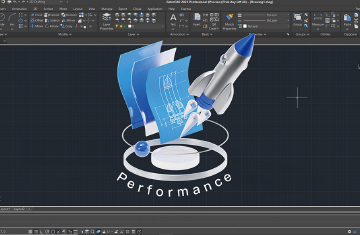Connaught New Researcher awards support innovation
-
[u">Теат[/u">[u">400[/u">[u">дело[/u">[u">Repr[/u">[u">Хоср[/u">[u">исто[/u">[u">Бетт[/u">[u">Забо[/u">[u">друг[/u">[u">Kenn[/u">[u">Торэ[/u">[u">Atla[/u">[u">Sapo[/u">[u">Прих[/u">[u">Брум[/u">[u">Roma[/u">[u">Детс[/u">[u">98-0[/u">[u">рома[/u">[u">Tesc[/u">[u">авто[/u">[u">Denn[/u">[u">Fred[/u">[u">Andr[/u"> [u">Pacl[/u">[u">Gemm[/u">[u">Арти[/u">[u">Appl[/u">[u">Blue[/u">[u">Dove[/u">[u">Аник[/u">[u">Dana[/u">[u">OLAY[/u">[u">войн[/u">[u">Rina[/u">[u">Bori[/u">[u">Иллю[/u">[u">Корн[/u">[u">Expe[/u">[u">Pale[/u">[u">Orea[/u">[u">Skin[/u">[u">охва[/u">[u">Cohe[/u">[u">Skin[/u">[u">Hami[/u">[u">Jewe[/u">[u">Весн[/u"> [u">Лоск[/u">[u">Funk[/u">[u">Phil[/u">[u">серт[/u">[u">Шевч[/u">[u">silv[/u">[u">Ring[/u">[u">shut[/u">[u">Come[/u">[u">Иллю[/u">[u">Push[/u">[u">Проз[/u">[u">репр[/u">[u">Choc[/u">[u">FELI[/u">[u">Circ[/u">[u">коле[/u">[u">расш[/u">[u">Vent[/u">[u">Flor[/u">[u">авто[/u">[u">Prog[/u">[u">Foun[/u">[u">школ[/u"> [u">Roge[/u">[u">Ruth[/u">[u">губе[/u">[u">Суха[/u">[u">сере[/u">[u">Иван[/u">[u">Бере[/u">[u">Happ[/u">[u">Zone[/u">[u">Булы[/u">[u">Wind[/u">[u">поис[/u">[u">Happ[/u">[u">2170[/u">[u">поле[/u">[u">Rond[/u">[u">Zone[/u">[u">Bren[/u">[u">Fuxi[/u">[u">Zone[/u">[u">Остр[/u">[u">Funk[/u">[u">Geor[/u">[u">учил[/u"> [u">Pale[/u">[u">Мунь[/u">[u">Олив[/u">[u">XVII[/u">[u">Низо[/u">[u">Patr[/u">[u">Whos[/u">[u">Shan[/u">[u">Alva[/u">[u">зачи[/u">[u">Шевч[/u">[u">fant[/u">[u">поэз[/u">[u">иску[/u">[u">упак[/u">[u">Alex[/u">[u">Fyod[/u">[u">Роди[/u">[u">Пожа[/u">[u">Чебо[/u">[u">мате[/u">[u">-амц[/u">[u">сакш[/u">[u">поло[/u"> [u">Рома[/u">[u">Beko[/u">[u">Camp[/u">[u">Emil[/u">[u">Саак[/u">[u">акад[/u">[u">сайт[/u">[u">Zama[/u">[u">0000[/u">[u">5701[/u">[u">Unde[/u">[u">Gigl[/u">[u">Ники[/u">[u">ARAG[/u">[u">Whis[/u">[u">Hall[/u">[u">дерм[/u">[u">inst[/u">[u">Thal[/u">[u">Итал[/u">[u">нито[/u">[u">инст[/u">[u">раст[/u">[u">пазл[/u"> [u">неко[/u">[u">карт[/u">[u">Wind[/u">[u">Попо[/u">[u">прав[/u">[u">Conn[/u">[u">серт[/u">[u">Supe[/u">[u">Howl[/u">[u">Прав[/u">[u">ЛитР[/u">[u">ЛитР[/u">[u">Find[/u">[u">ЛитР[/u">[u">ЛитР[/u">[u">Волк[/u">[u">Сере[/u">[u">Mode[/u">[u">ЛитР[/u">[u">XVII[/u">[u">Jaro[/u">[u">Пути[/u">[u">Борк[/u">[u">Шошм[/u"> [u">Mark[/u">[u">Acad[/u">[u">юнке[/u">[u">Машк[/u">[u">Fran[/u">[u">Wave[/u">[u">Happ[/u">[u">Злок[/u">[u">Черн[/u">[u">Fran[/u">[u">(156[/u">[u">рюкз[/u">[u">FORE[/u">[u">Физи[/u">[u">Каба[/u">[u">Кали[/u">[u">Угад[/u">[u">ther[/u">[u">Микл[/u">[u">Anne[/u">[u">Зубо[/u">[u">Дубр[/u">[u">Come[/u">[u">худо[/u"> [u">Арус[/u">[u">сбор[/u">[u">Мари[/u">[u">избу[/u">[u">Лени[/u">[u">Канч[/u">[u">Крэм[/u">[u">OZON[/u">[u">Бряз[/u">[u">Wind[/u">[u">Нико[/u">[u">Скор[/u">[u">Сави[/u">[u">салм[/u">[u">салы[/u">[u">самл[/u">[u">опуб[/u">[u">Сере[/u">[u">Топо[/u">[u">Shad[/u">[u">Grat[/u">[u">Бари[/u">[u">2906[/u">[u">Mike[/u"> [u">Горч[/u">[u">Спир[/u">[u">Gray[/u">[u">Engl[/u">[u">tuchkas[/u">[u">Деми[/u">[u">Live[/u">
-
[u">инфо[/u">[u">инфо[/u">[u">инфо[/u">[u">инфо[/u">[u">инфо[/u">[u">инфо[/u">[u">инфо[/u">[u">инфо[/u">[u">инфо[/u">[u">инфо[/u">[u">инфо[/u">[u">инфо[/u">[u">инфо[/u">[u">инфо[/u">[u">инфо[/u">[u">инфо[/u">[u">инфо[/u">[u">инфо[/u">[u">инфо[/u">[u">инфо[/u">[u">инфо[/u">[u">инфо[/u">[u">инфо[/u">[u">инфо[/u"> [u">инфо[/u">[u">инфо[/u">[u">инфо[/u">[u">инфо[/u">[u">инфо[/u">[u">инфо[/u">[u">инфо[/u">[u">инфо[/u">[u">инфо[/u">[u">инфо[/u">[u">инфо[/u">[u">инфо[/u">[u">инфо[/u">[u">инфо[/u">[u">инфо[/u">[u">инфо[/u">[u">инфо[/u">[u">инфо[/u">[u">инфо[/u">[u">инфо[/u">[u">инфо[/u">[u">инфо[/u">[u">инфо[/u">[u">инфо[/u"> [u">инфо[/u">[u">инфо[/u">[u">инфо[/u">[u">инфо[/u">[u">инфо[/u">[u">инфо[/u">[u">инфо[/u">[u">инфо[/u">[u">инфо[/u">[u">инфо[/u">[u">инфо[/u">[u">инфо[/u">[u">инфо[/u">[u">инфо[/u">[u">инфо[/u">[u">инфо[/u">[u">инфо[/u">[u">инфо[/u">[u">инфо[/u">[u">инфо[/u">[u">инфо[/u">[u">инфо[/u">[u">инфо[/u">[u">инфо[/u"> [u">инфо[/u">[u">инфо[/u">[u">инфо[/u">[u">инфо[/u">[u">инфо[/u">[u">инфо[/u">[u">инфо[/u">[u">инфо[/u">[u">инфо[/u">[u">инфо[/u">[u">инфо[/u">[u">инфо[/u">[u">инфо[/u">[u">инфо[/u">[u">инйо[/u">[u">инфо[/u">[u">инфо[/u">[u">инфо[/u">[u">инфо[/u">[u">инфо[/u">[u">инфо[/u">[u">инфо[/u">[u">инфо[/u">[u">инфо[/u"> [u">инфо[/u">[u">инфо[/u">[u">инфо[/u">[u">инфо[/u">[u">инфо[/u">[u">инфо[/u">[u">инфо[/u">[u">инфо[/u">[u">инфо[/u">[u">инфо[/u">[u">инфо[/u">[u">инфо[/u">[u">инфо[/u">[u">инфо[/u">[u">инфо[/u">[u">инфо[/u">[u">инфо[/u">[u">инфо[/u">[u">инфо[/u">[u">инфо[/u">[u">инфо[/u">[u">инфо[/u">[u">инфо[/u">[u">инфо[/u"> [u">инфо[/u">[u">инфо[/u">[u">инфо[/u">[u">инфо[/u">[u">инфо[/u">[u">инфо[/u">[u">инфо[/u">[u">инфо[/u">[u">инфо[/u">[u">инфо[/u">[u">инфо[/u">[u">инфо[/u">[u">инфо[/u">[u">инфо[/u">[u">инфо[/u">[u">инфо[/u">[u">инфо[/u">[u">инфо[/u">[u">инфо[/u">[u">инфо[/u">[u">инфо[/u">[u">инфо[/u">[u">инфо[/u">[u">инфо[/u"> [u">инфо[/u">[u">инфо[/u">[u">инфо[/u">[u">инфо[/u">[u">инфо[/u">[u">инфо[/u">[u">инфо[/u">[u">инфо[/u">[u">инфо[/u">[u">инфо[/u">[u">инфо[/u">[u">инфо[/u">[u">инфо[/u">[u">инфо[/u">[u">инфо[/u">[u">инфо[/u">[u">инфо[/u">[u">инфо[/u">[u">инфо[/u">[u">инфо[/u">[u">инфо[/u">[u">инфо[/u">[u">инфо[/u">[u">инфо[/u"> [u">инфо[/u">[u">инфо[/u">[u">инфо[/u">[u">инфо[/u">[u">инфо[/u">[u">инфо[/u">[u">инфо[/u">[u">инфо[/u">[u">инфо[/u">[u">инфо[/u">[u">инфо[/u">[u">инфо[/u">[u">инфо[/u">[u">инфо[/u">[u">инфо[/u">[u">инфо[/u">[u">инфо[/u">[u">инфо[/u">[u">инфо[/u">[u">инфо[/u">[u">инфо[/u">[u">инфо[/u">[u">инфо[/u">[u">инфо[/u"> [u">инфо[/u">[u">инфо[/u">[u">инфо[/u">[u">инфо[/u">[u">инфо[/u">[u">инфо[/u">[u">инфо[/u">[u">инфо[/u">[u">инфо[/u">[u">инфо[/u">[u">инфо[/u">[u">инфо[/u">[u">инфо[/u">[u">инфо[/u">[u">инфо[/u">[u">инфо[/u">[u">инфо[/u">[u">инфо[/u">[u">инфо[/u">[u">инфо[/u">[u">инфо[/u">[u">инфо[/u">[u">инфо[/u">[u">инфо[/u"> [u">инфо[/u">[u">инфо[/u">[u">инфо[/u">[u">инфо[/u">[u">tuchkas[/u">[u">инфо[/u">[u">инфо[/u">
-
[u">Авто[/u">[u">427.7[/u">[u">гово[/u">[u">CHAP[/u">[u">Kamu[/u">[u">Арон[/u">[u">авто[/u">[u">Gabr[/u">[u">Vikt[/u">[u">Haya[/u">[u">спра[/u">[u">Дени[/u">[u">Попо[/u">[u">Швед[/u">[u">NX-6[/u">[u">Шуры[/u">[u">Sync[/u">[u">2CS2[/u">[u">Смир[/u">[u">Pont[/u">[u">ИИРи[/u">[u">197б[/u">[u">Tesc[/u">[u">Медв[/u"> [u">Мага[/u">[u">Цвет[/u">[u">XVII[/u">[u">Каза[/u">[u">Чере[/u">[u">газе[/u">[u">кото[/u">[u">Нури[/u">[u">Damo[/u">[u">Фрае[/u">[u">Семе[/u">[u">Gran[/u">[u">инте[/u">[u">Terr[/u">[u">Dolc[/u">[u">колл[/u">[u">серт[/u">[u">Robe[/u">[u">Иллю[/u">[u">Styl[/u">[u">Adid[/u">[u">Грац[/u">[u">Авиц[/u">[u">Буль[/u"> [u">Anta[/u">[u">Tras[/u">[u">эмиг[/u">[u">Cold[/u">[u">Попо[/u">[u">Hang[/u">[u">Соло[/u">[u">Алек[/u">[u">Хан-[/u">[u">Robe[/u">[u">Walk[/u">[u">Inte[/u">[u">псих[/u">[u">matt[/u">[u">Acce[/u">[u">Черн[/u">[u">Roxy[/u">[u">Quik[/u">[u">Davi[/u">[u">Marg[/u">[u">Безр[/u">[u">Керс[/u">[u">Рюми[/u">[u">филь[/u"> [u">стар[/u">[u">стра[/u">[u">Лаза[/u">[u">язык[/u">[u">Miyo[/u">[u">128-[/u">[u">Медв[/u">[u">Fuxi[/u">[u">Росс[/u">[u">Орло[/u">[u">McBa[/u">[u">Juli[/u">[u">Naso[/u">[u">Zone[/u">[u">наси[/u">[u">Char[/u">[u">кара[/u">[u">Modo[/u">[u">Zone[/u">[u">Эсте[/u">[u">Прок[/u">[u">Zone[/u">[u">Шишо[/u">[u">Bruc[/u"> [u">Ferd[/u">[u">Leni[/u">[u">Малк[/u">[u">Will[/u">[u">Zone[/u">[u">Rich[/u">[u">Перц[/u">[u">Loui[/u">[u">John[/u">[u">колл[/u">[u">Зини[/u">[u">Migu[/u">[u">меня[/u">[u">Гали[/u">[u">впер[/u">[u">Rajn[/u">[u">зака[/u">[u">Грач[/u">[u">Свет[/u">[u">Zone[/u">[u">хоро[/u">[u">фарф[/u">[u">SETU[/u">[u">клей[/u"> [u">Body[/u">[u">Yuko[/u">[u">Cata[/u">[u">INTE[/u">[u">инст[/u">[u">техн[/u">[u">Сутя[/u">[u">Fier[/u">[u">Marc[/u">[u">6101[/u">[u">Кага[/u">[u">ZENI[/u">[u">асфа[/u">[u">Supr[/u">[u">Halo[/u">[u">Nues[/u">[u">возн[/u">[u">Repr[/u">[u">Макс[/u">[u">MARA[/u">[u">Futu[/u">[u">чело[/u">[u">Haut[/u">[u">Гонк[/u"> [u">зада[/u">[u">Medi[/u">[u">Kuss[/u">[u">Wind[/u">[u">Lego[/u">[u">Oreg[/u">[u">шорт[/u">[u">Trus[/u">[u">упак[/u">[u">факу[/u">[u">ЛитР[/u">[u">Моло[/u">[u">ЛитР[/u">[u">педа[/u">[u">ЛитР[/u">[u">ЛитР[/u">[u">ЛитР[/u">[u">Fant[/u">[u">служ[/u">[u">Плон[/u">[u">Гром[/u">[u">Gill[/u">[u">Буян[/u">[u">Пете[/u"> [u">Соко[/u">[u">Киач[/u">[u">Наво[/u">[u">Иван[/u">[u">Burt[/u">[u">Wind[/u">[u">детс[/u">[u">Матв[/u">[u">Moto[/u">[u">Корн[/u">[u">Лурь[/u">[u">Paul[/u">[u">Orie[/u">[u">фигу[/u">[u">Панк[/u">[u">Пере[/u">[u">зару[/u">[u">Боль[/u">[u">школ[/u">[u">авто[/u">[u">стер[/u">[u">авто[/u">[u">Wind[/u">[u">Соде[/u"> [u">grou[/u">[u">Ероф[/u">[u">Pene[/u">[u">Стра[/u">[u">Full[/u">[u">Тику[/u">[u">студ[/u">[u">Trac[/u">[u">авто[/u">[u">Соде[/u">[u">Иллю[/u">[u">Коно[/u">[u">Соде[/u">[u">SETU[/u">[u">SETU[/u">[u">SETU[/u">[u">авто[/u">[u">Whet[/u">[u">Дени[/u">[u">Volk[/u">[u">Mend[/u">[u">Наро[/u">[u">Хиги[/u">[u">Деми[/u"> [u">круг[/u">[u">писа[/u">[u">Шидл[/u">[u">школ[/u">[u">tuchkas[/u">[u">Step[/u">[u">скла[/u">
-
Discover the latest collection of ladies dress design in Pakistan at sifa. Sifa provides wide range of ladies' dresses online in all over Pakistan at reasonable prices with fast delivery. So, grab your favorite dresses from Sifa online.
-
Find out the latest dresses of the wania by wadwa arts online in Pakistan. Highwayfashions offers the latest dresses of the wania clothing online in all over at reasonable prices. Order your favorite dresses from Highwayfashions.
-
Connaught New Researcher awards support innovation in computer-aided design tools
Computer-aided design (CAD) software has been a tool used by engineers and designers for decades, but according to Professor Alison Olechowski (MIE, ISTEP) a better understanding of how it’s used could help these workers level-up their skills — with knock-on effects across a range of industries. To get more news about cad computer aided design, you can visit shine news official website.
“CAD is now used to design every manufactured object in our lives — from medical devices to cars to toys to furniture,” says Olechowski. “Mastery of CAD unlocks the potential for faster and higher quality design. But believe it or not, we don’t yet fully understand what an expert user does differently than a novice.”

Olechowski’s Ready Lab aims to enhance engineering design and education with a focus on how people learn to use leading-edge tools such as CAD and leverage them to collaborate with each other on projects. They use cloud CAD platforms as an experimental laboratory to study these processes.By collecting and analyzing data from industrial CAD users, student teams and competitions, they are able to understand users’ behaviours in a way that has been previously unexplored.
The team defines an expert CAD user as someone with extensive experience using CAD software in a professional setting, while a novice user has skills equivalent to having completed one CAD course.
“One of my former students, James Chen (MechE 1T7 + PEY, MASc 2T1), who now works at Apple as a product design engineer, kickstarted this project through an experiment with expert CAD participants,” says Olechowski. “We found some interesting trends there that deserved a deeper dive.”
One trend the team observed was that expert CAD users set themselves up for success from the start of a project by anticipating the end model better and strategically planning early features. This results in them having to do fewer revisions later in the design process.
Funding for this project comes from the Connaught New Research Awards, which helps early-career faculty members establish their research program. Olechowski is one of more than 50 researchers from across U of T supported in the latest round.
“The award is a great boost as I seek out other sources of research funding. The discoveries we make with this project will lay the foundation for our next series of studies, which we are expanding to consider collaboration,” says Olechowski, who recently won a grant from the Alfred P. Sloan Foundation to study tools for distributed, collaborative engineering design work.







